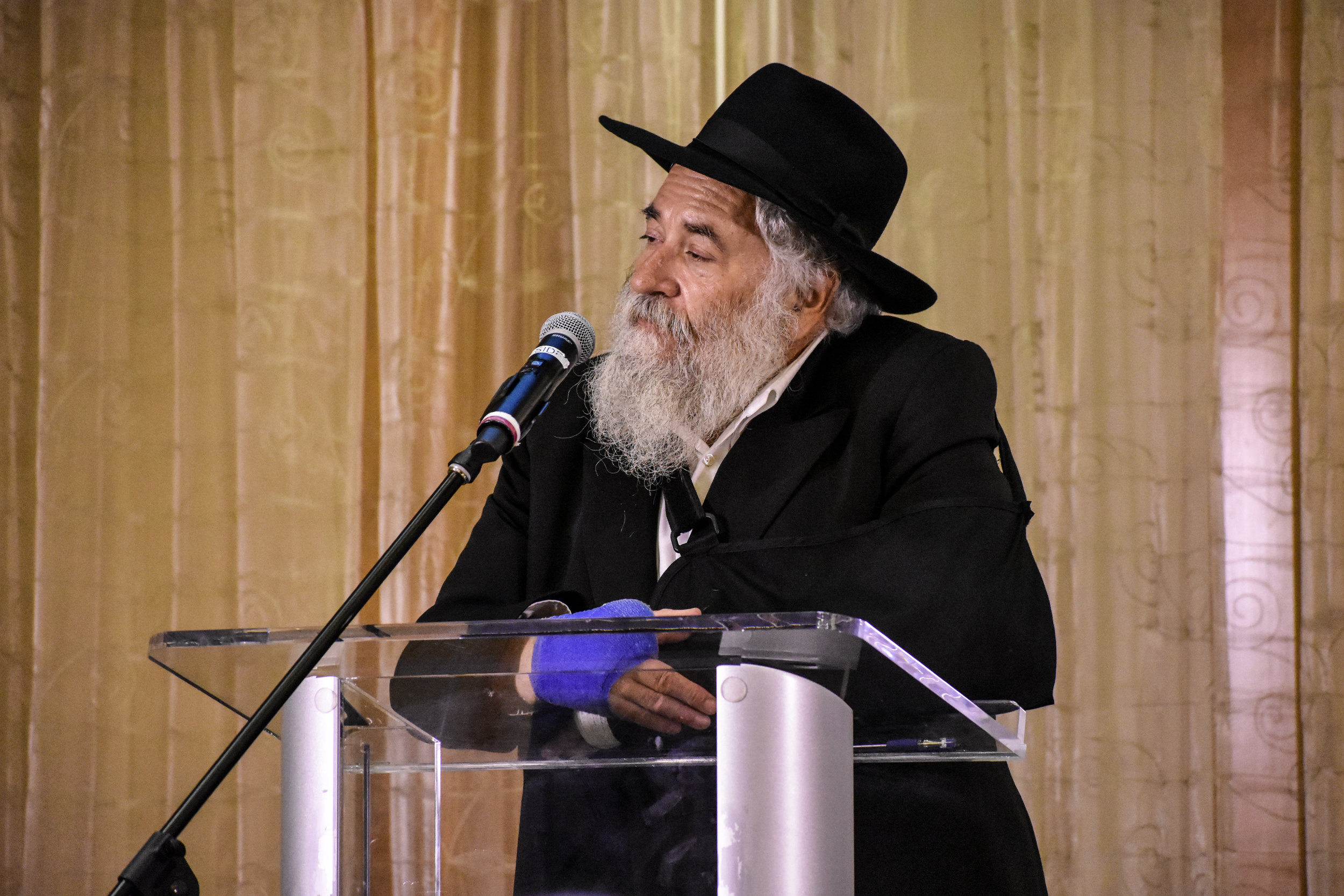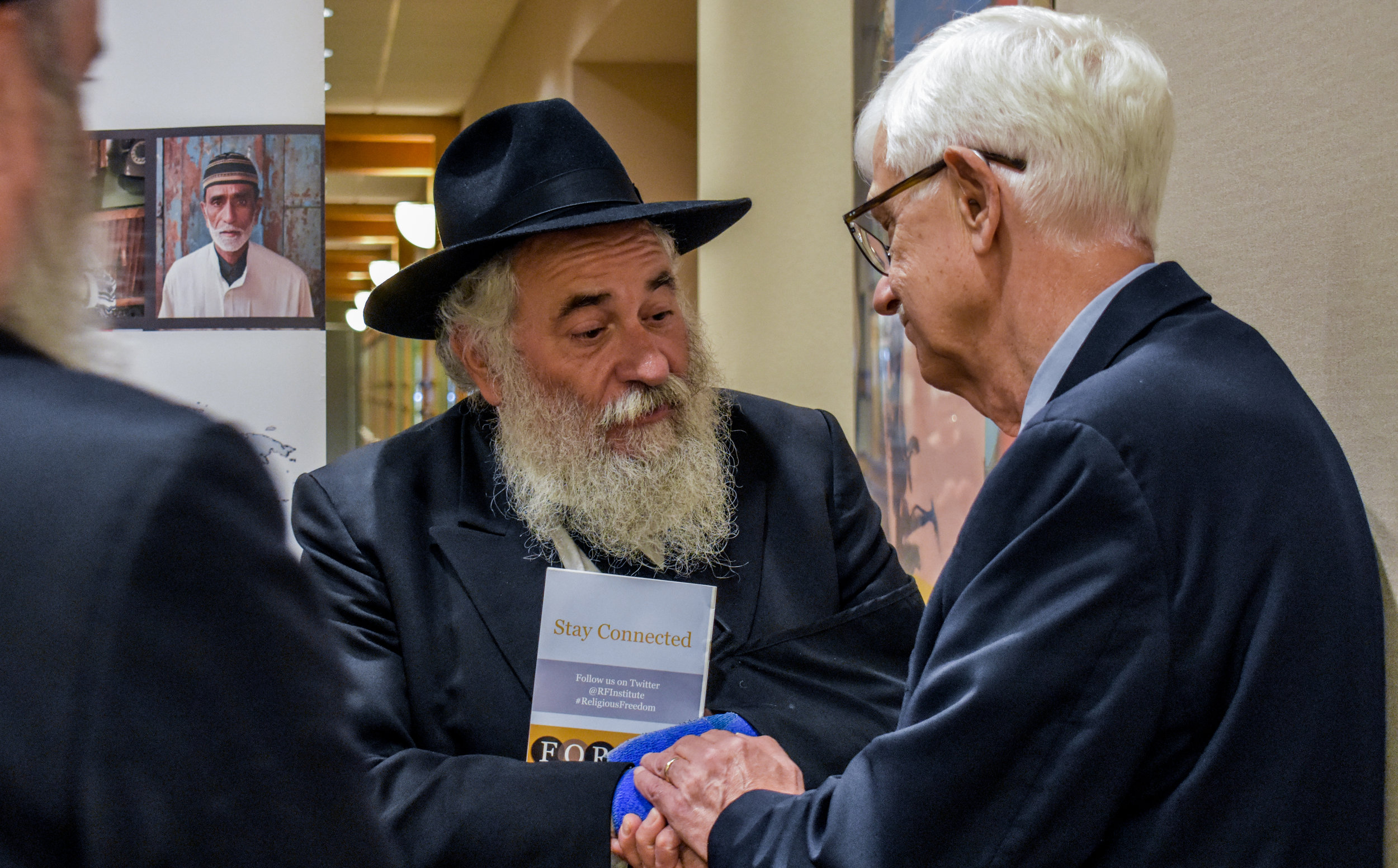On May 29, the Religious Freedom Institute convened a working group of scholars to launch its Freedom of Religious Institutions in Society (FORIS) Project, an initiative dedicated to examining institutional religious freedom in countries around the world and its relation to the common good in those societies. “Institutional religious freedom” refers to the freedom of religiously defined organizations to live out their beliefs in society. This includes not only houses of worship, but schools, universities, hospitals, newspapers, TV channels, adoption and foster agencies, welfare agencies, and a welter of other organizations contributing in their particular way both to their own communities and to the common good. This day-long working group meeting illuminated the issue and its complexities with lived experience, wide learning, and analytical rigor.
Despite these virtues, I think all who participated would agree that the highlight of the day was listening to the lunchtime address by Rabbi Yisroel Goldstein of the Chabad Jewish Community Center of Poway, California. On April 27, 2019, a gunman entered his synagogue and began shooting. This attack was perhaps made more vile by its timing on the last day of Passover, which fell on a Shabbat. One woman was killed, and three other people were injured, including the Rabbi, who lost fingers from both hands when he challenged the shooter.
We expected a powerful address and we received one. We were not expecting extensive lessons on the theme of institutional religious freedom, but we received that also.
Rabbi Goldstein said that his response to this vicious anti-Semitic attack was not now to retreat and thus give a lower profile to attackers, but to try as much as possible to be more profoundly and visibly Jewish. He counseled to not only “be Jewish but DO JEWISH.”
His resolve to express boldly his Jewish identity came to the fore on the first Shabbat after the shooting. According to Rabbi Goldstein, the observance was like a combination of Yom Kippur, a somber High Holy Day when Jews contemplate their deaths, and the joyful Simchat Torah festivities filled with music and dancing. Doing Jewish, as the Rabbi describes it, goes beyond the sanctuary of Chabad of Poway in that his beloved community center maintains a preschool, an afternoon Hebrew school, a senior center, a library, a program examining criminal justice in light of Jewish wisdom, a partnership with the Jewish Business Network, and more. These are some of the institutional dimensions of what Rabbi Goldstein means by “doing Jewish.”
Chabad of Poway encapsulates RFI’s model of religious freedom—the freedom not only to hold religious beliefs and worship but to live out that faith publicly: to do Jewish.…and do Christian, and Muslim, and Hindu, and Baha’i, and…. Religious freedom includes the freedom to express religious beliefs in our personal, social, and institutional lives.
Paul Marshall is Wilson Professor of Religious Freedom at Baylor University, Senior Fellow at the Religious Freedom Institute, and Senior Fellow at the Hudson Institute’s Center for Religious Freedom.
THE RFI BLOG

Be More Faithful, Become More Resilient: An Invitation to Religious Institutions

How Soccer Reveals Different Meanings Of ‘Secular’ In France And The US

RFI’s Ismail Royer Meets with Delegation from India

Protecting the Unborn, Mothers, and Medical Ethics: The Stakes of Arkansas’ Amendment

Wisconsin Supreme Court Punishes Catholic Charities for Serving Everyone
CORNERSTONE FORUM

Public Bioethics & the Failure of Expressive Individualism

Religious Liberty in American Higher Education

Scotland’s Kate Forbes and the March of Secularism

70 Years of Religious Freedom in Sweden: Prospects and Challenges



